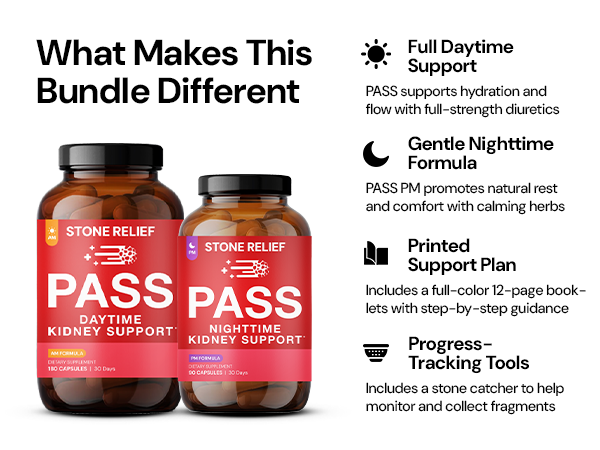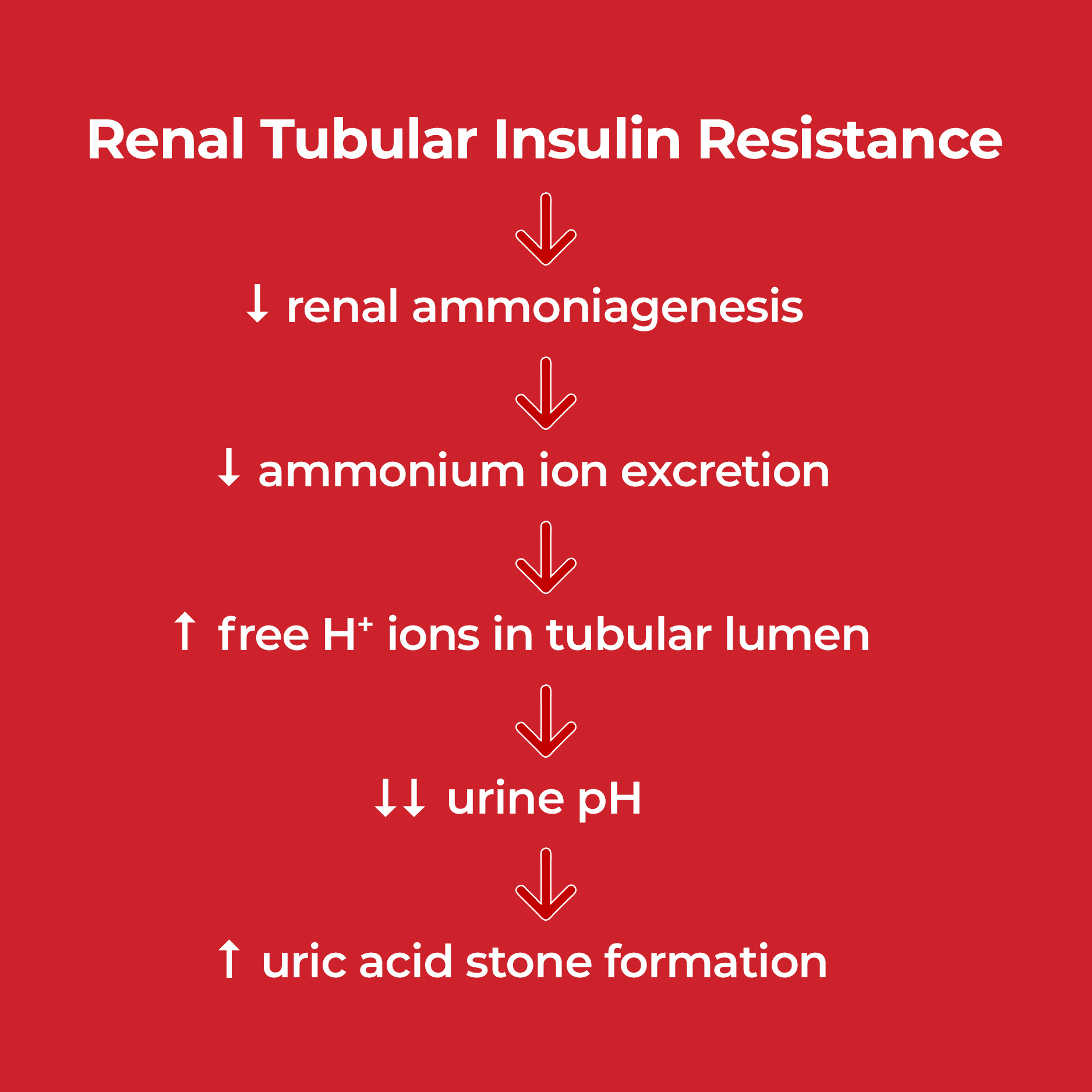The Impact of Diabetes on Kidney Stones
Most people don’t realize that diabetes, especially type 2, significantly increases the risk of kidney stones. This blog explains how diabetes causes acidic urine, reduces ammonium production, and triggers uric acid kidney stones. Learn the mechanisms behind it—and how dietary changes can help you avoid recurrence.
Key Takeaways
-
Diabetics are 2x more likely to form kidney stones
-
Over 30% of uric acid stone formers also have diabetes
-
Diabetes reduces ammonium production, making urine more acidic
-
Diet-driven changes can help prevent both diabetes and stones
Did you know that one-third of the U.S. population is currently suffering from pre-diabetes?
If that doesn’t shock you, it should—especially if you’ve been struggling with recurrent uric acid kidney stones.
As rates of diabetes continue to rise, so do the rates of kidney stone formation, and it’s not a coincidence. These two conditions are deeply connected, especially when you understand their underlying mechanisms.
Let’s walk through how diabetes and kidney stones are related, and what you can do to break the cycle. 
🛒 Check Price & Purchase Stone Relief Pass AM/PM Bundle on Amazon
What Is Diabetes, Really?
At its core, diabetes is a blood sugar regulation disorder.
There are two primary types:
-
Type 1 Diabetes: An autoimmune disease where the body destroys insulin-producing cells in the pancreas. It accounts for about 5% of all diabetes cases. These individuals typically require insulin therapy for life.
-
Type 2 Diabetes: Far more common—95% of all diabetes cases—and driven by lifestyle, particularly poor diet. It’s characterized by insulin resistance, where cells don’t respond properly to insulin.
If you’re unsure whether you’re diabetic or pre-diabetic, a simple blood test from your doctor can tell you. And if you’ve had uric acid kidney stones, getting that test might be a smart move.

How Diabetes Impacts Kidney Stones
Once you understand what diabetes does to the body, the link to kidney stones becomes clear.
If you’re diabetic, you’re twice as likely to form kidney stones compared to someone without diabetes.
And it gets even more serious for uric acid stone formers. Research shows that at least 30% of uric acid kidney stone sufferers also have diabetes—and that number is likely much higher.
Here’s why.
1. Diabetes Causes Acidic Urine
Uric acid stones require acidic urine to form—specifically a urine pH of less than 5.5.
Diabetes disrupts the body’s ability to produce ammonium, which normally neutralizes acidity in the urine. When ammonium levels are low, urine becomes highly acidic, creating the perfect environment for uric acid crystals to develop.
2. Acidic Urine Also Fuels Calcium Oxalate Stones
Even if you’re not forming uric acid stones, acidic urine can also increase your risk for calcium oxalate stones, another common type.
So whether you’re forming one type or the other, urine pH is the critical factor to monitor.
3. Insulin Resistance = Stone Risk
The more insulin resistant you are, the worse this cycle gets.
-
Insulin resistance reduces ammonium production
-
Reduced ammonium increases urine acidity
-
Acidic urine causes more stones
-
Stones increase inflammation and stress, which can worsen insulin resistance
It’s a vicious cycle—but it can be stopped.
🛒 Check Price & Purchase Stone Relief Pass AM/PM Bundle on Amazon
How to Break the Diabetes-Stone Cycle
Here’s the good news: you’re not powerless.
And the solution doesn’t require medication in most cases.
It starts with diet.
95% of diabetes is type 2, and that form is almost entirely driven by what you eat.
Processed carbs, added sugars, and nutrient-poor foods are the real culprits. They don’t just spike your blood sugar—they acidify your body, suppress ammonium production, and increase your risk of both stones and chronic disease.
What You Can Do Starting Today
If you’ve had uric acid or calcium oxalate stones and suspect you might be insulin resistant, start with these steps:
-
Test your urine pH daily for 1–2 weeks. If it’s consistently below 6.0, you likely have acidic urine.
-
Focus your diet on animal-based nutrition—meat, dairy, eggs, and minimal fruit depending on your needs.
-
Cut processed carbs, grains, and sugars. These worsen both diabetes and stone formation.
-
Stay hydrated with at least 3 liters of water daily to help flush out stone-forming elements.
-
Consider working with a coach who understands both metabolic health and kidney stones.
🛒 Check Price & Purchase Stone Relief Pass AM/PM Bundle on Amazon
Final Thoughts: Don’t Let Diabetes and Kidney Stones Win
Diabetes and kidney stones don’t have to rule your life.
Both are tied to controllable lifestyle factors, and with the right strategy, you can reverse the damage.
I haven’t had a single kidney stone in over five years—and I started exactly where you are.
Through diet, testing, and trial-and-error, I cracked the code. Now I help others do the same.







